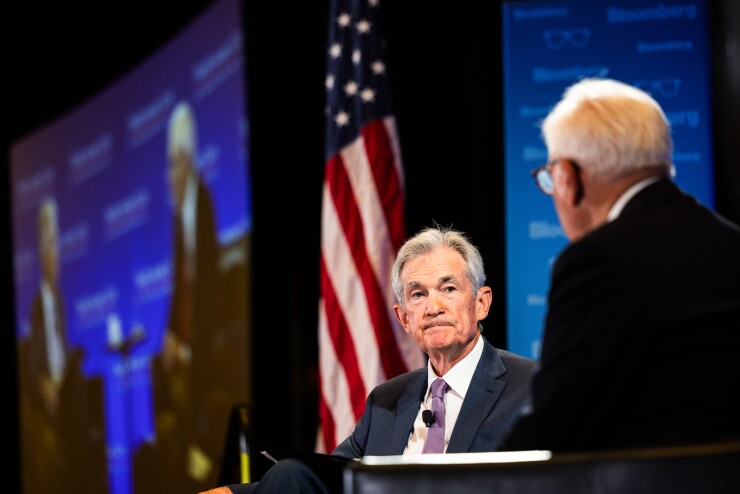
Regardless of the outcome of this
During an onstage interview at the Economic Club of Washington, D.C. on Monday afternoon, Powell confirmed that he would complete his
"I have nothing for you on that today," Powell told his interviewer, David Rubenstein.
Rubenstein is the co-founder and co-owner of the Carlyle Group, the Washington, D.C.-based private equity firm where Powell spent much of his private sector career before being nominated to the Fed board by then-President Barack Obama in 2012.
Powell's commitment to the position comes as Washington prepares for a possible second term for President Donald Trump.
Although Trump
Powell's only direct comments about Trump were to denounce the assassination attempt against the former president over the weekend and to wish him well in his recovery.
"It was really a very sad day for our country. Political violence has no place in our society, and I condemn it in the strongest terms. I know we all do," Powell said. "A man died at a political rally. Two other people were critically injured, so just a sad day, and I'll say that I'm grateful that the injuries to the former president were not more serious."
Fed governors are only allowed to be appointed to one full 14-year term, but they are allowed to finish another governor's term or remain in office once their term expires, so long as a replacement is not named. Because of this, Powell could technically serve as Fed chair again — a term that would end in 2030 — even though his governorship term ends in 2028. But he would have to be renominated by the sitting president and be confirmed by the Senate, provided he accepts the nomination to begin with.
The issue of the Fed's leadership and governance has re-emerged in recent weeks in light of the so-called
"We're not looking for any law change," he said. "We think we have the authorities that we need. We think that the law is in just a fine place."
During the interview, Powell emphasized the importance of
"A long time ago, people learned that a central bank that's independent of political consideration does a better job getting inflation under control, and that is now accepted wisdom in all advanced economies around the world. It's also a principle that has very, very strong and broad support where it really matters, which is in Congress," he said. "You talk to senior leaders in both chambers, in both political parties, and they all understand that you want an independent central bank that doesn't run monetary policy to support or oppose any particular politician or political party."






